"Hard work and rather trying" reported Gen. Marshall
Attendees at the Yalta conference in February 1945 realized President Roosevelt was sick, but his death in April was a shock on both sides of the Atlantic. Within a few weeks, Marshal Stalin was pushing for the next Allied conference, to be held in Potsdam, near Berlin.
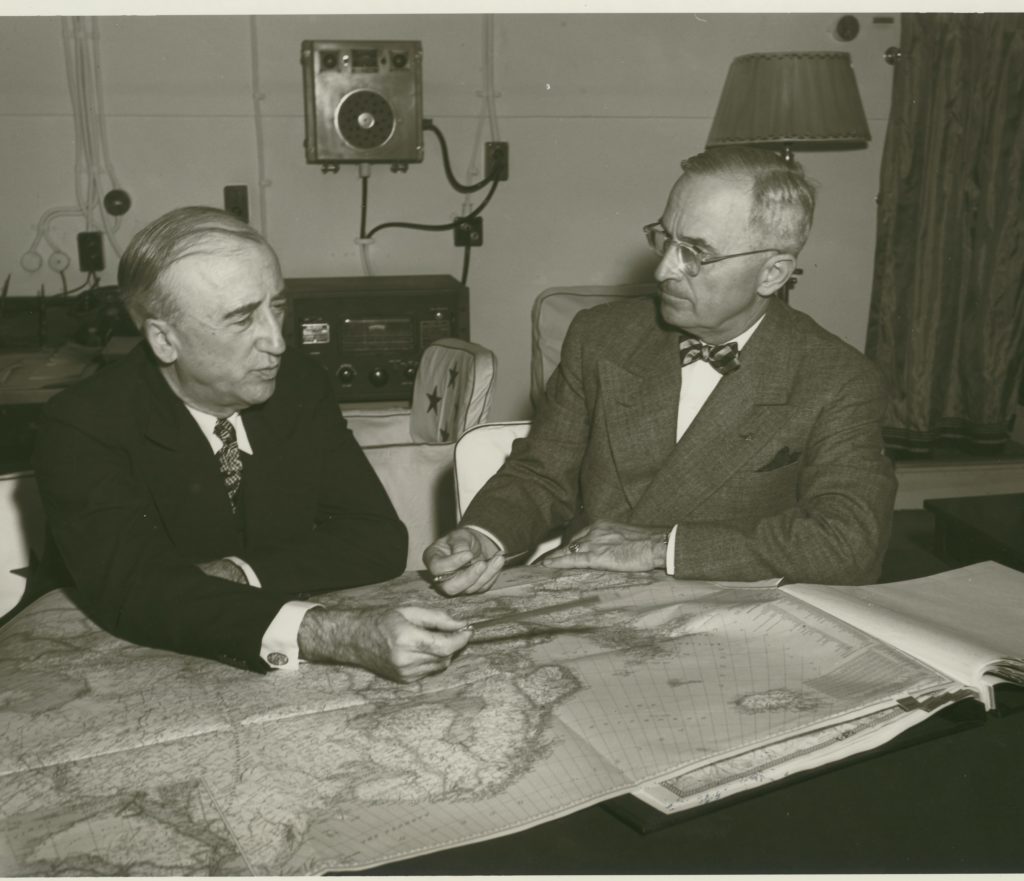
President Harry Truman meeting with Secretary of State James F. Byrnes in preparation for the Potsdam Conference.
President Truman made his first return trip to Germany since World War I when he traveled to the conference in July 1945. It’s reported that although the President had a briefcase full of papers about past allied meetings and had spent hours preparing, he was not excited for this conference.
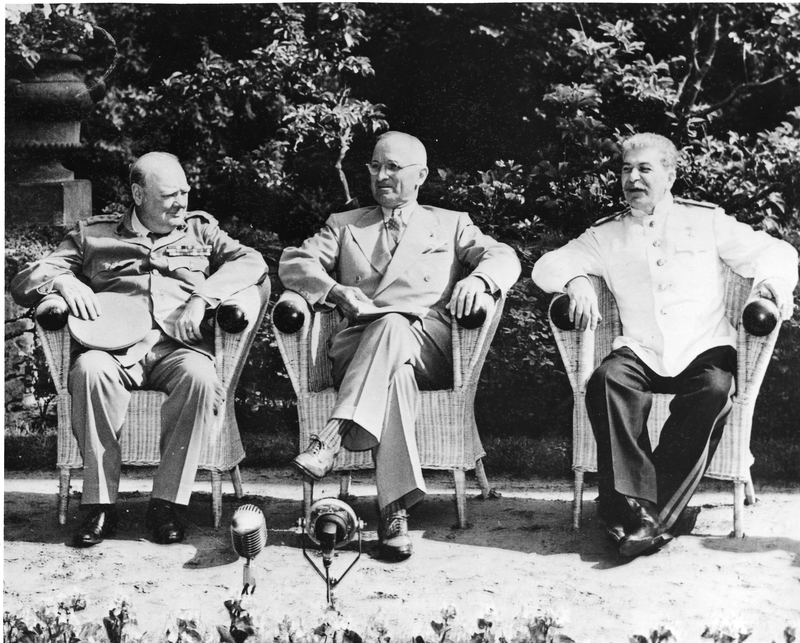
Prime Minister Winston Churchill, President Harry Truman, Marshal Joseph Stalin at the opening of the Potsdam Conference.
At the commencement of the Potsdam meetings, Truman was the only new leader. Partway through the conference, however, Prime Minister Winston Churchill had to return to England for elections, and when his party was voted out of power, new Prime Minister Clement Attlee took his place in Potsdam.
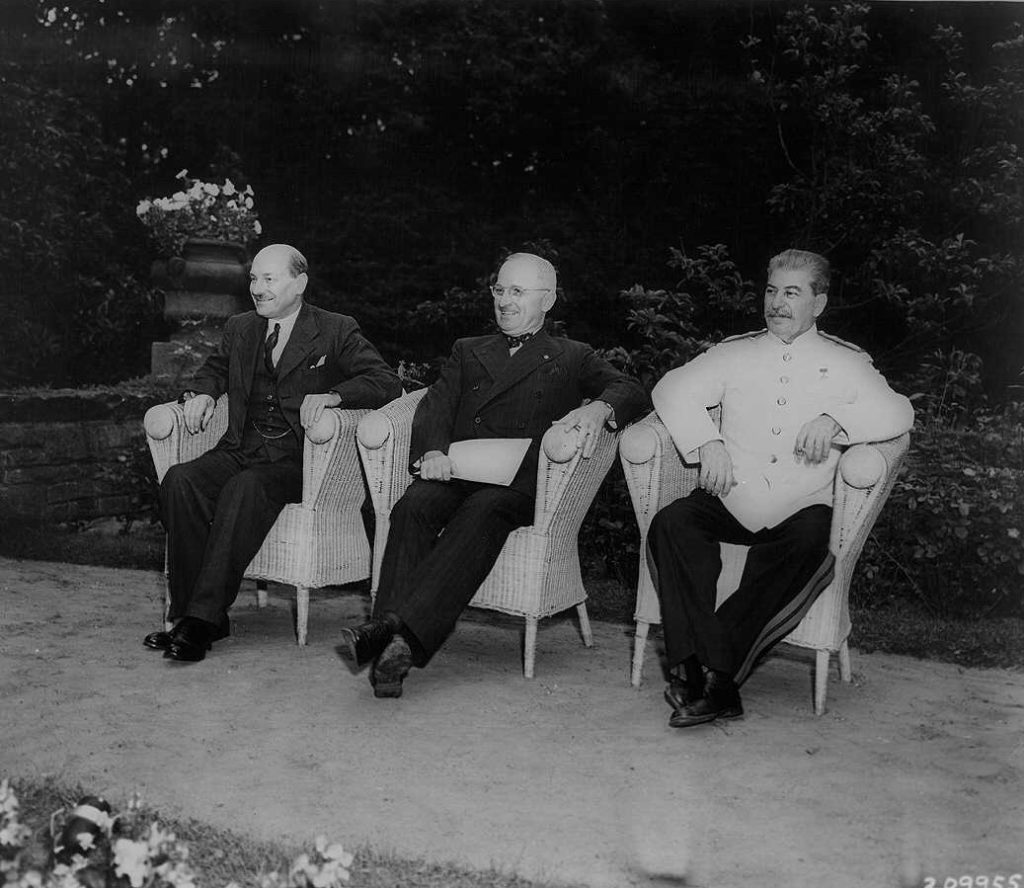
New British Prime Minister Clement Attlee, President Harry Truman, Marshal Joseph Stalin
There were some hard decisions faced at Potsdam, and some changes to previous allied agreements. Marshal Stalin wanted reparations from Germany, to which Roosevelt initially agreed at Yalta. Truman recalled how reparations after World War I created an economic situation that facilitated Hitler’s rise to power, and refused to consider reparations at Postdam. An agreement was made instead where the Soviet Union would receive industrial equipment from undamaged parts of Germany.
Administration of post-war Germany was an important topic. It was settled that Germany would be divided into four zones, with the United States, Great Britain, France, and the Soviet Union each administering a zone. Poland was ceded land near the Oder and Neisse rivers that had been taken by Germany but a formal treaty between Germany and Poland regarding this land was not signed until 1990.
Plans were also made to remove Nazi party members from governmental positions, and to hold post-war trials for those who committed war crimes. Laws passed by the Nazi government were also repealed.
A council of foreign ministers from the allied countries – United States, Great Britain, the Soviet Union, France, and China – was established, and the 1947 meeting of this council would be Secretary of State George Marshall’s first major conference.
While at Potsdam, Marshall wrote in a letter to his sister, Marie Singer: “The conference at Potsdam was hard work and rather trying but we were comfortably set up and had some very pleasant evenings.”
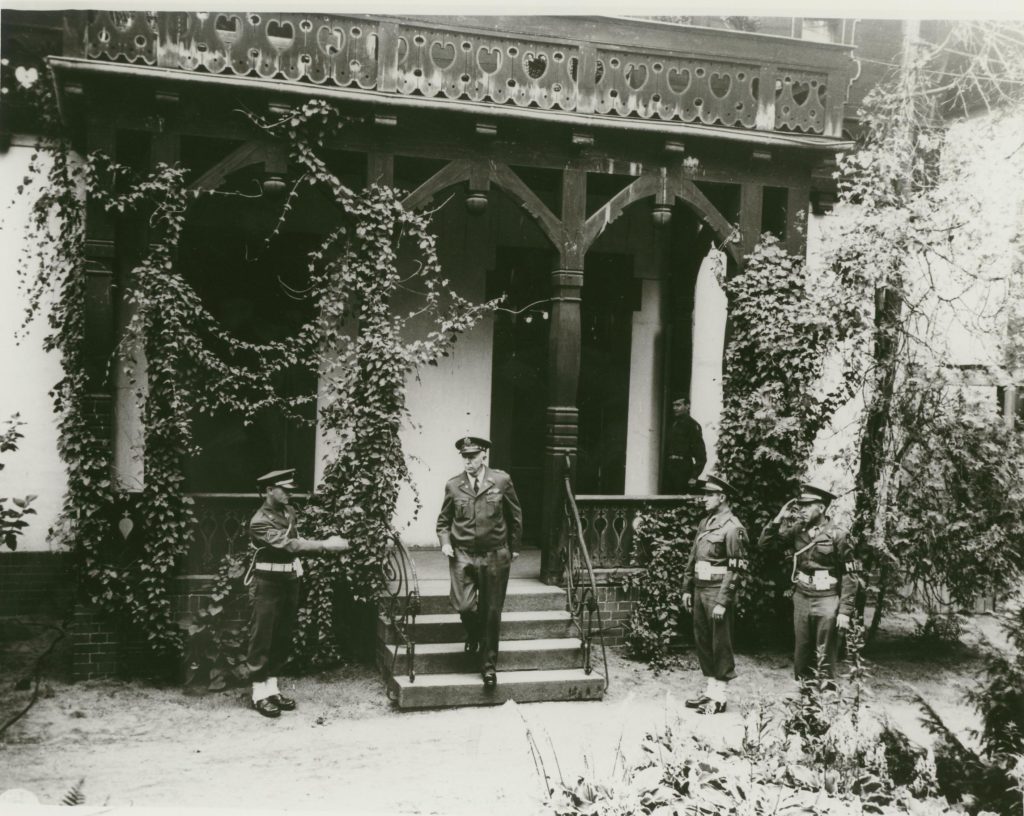
House on Berlinerstrasse shared by Gen. George Marshall and Gen. “Hap” Arnold and their aides.
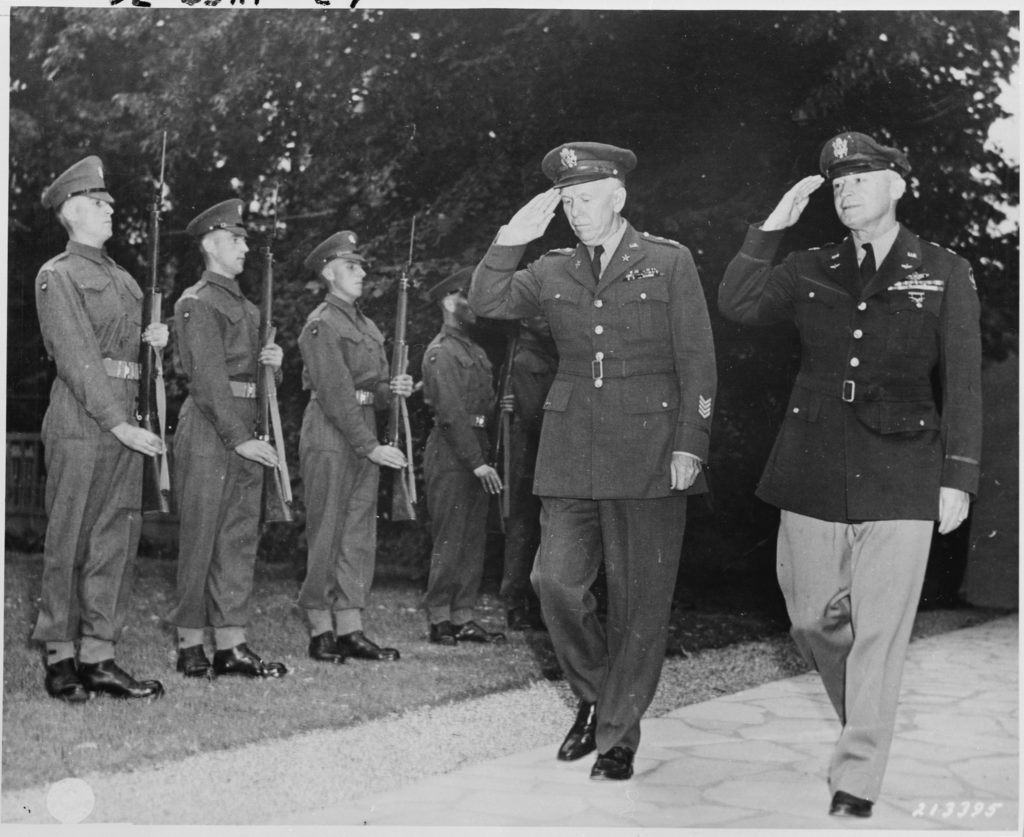
Gen. George Marshall and Gen. “Hap” Arnold attended a dinner with Prime Minister Winston Churchill during the Potsdam Conference.
The Combined Chiefs, along with Soviet and French chiefs, were not involved in the plenary sessions, as most of the military planning for Europe was done. The chiefs met separately, mostly concerned the war in the Pacific and what could be done to end it sooner. The British agreed to participate in the planned invasion of Japan, and grudging conceded that the Supreme Allied Commander would be from the United States.
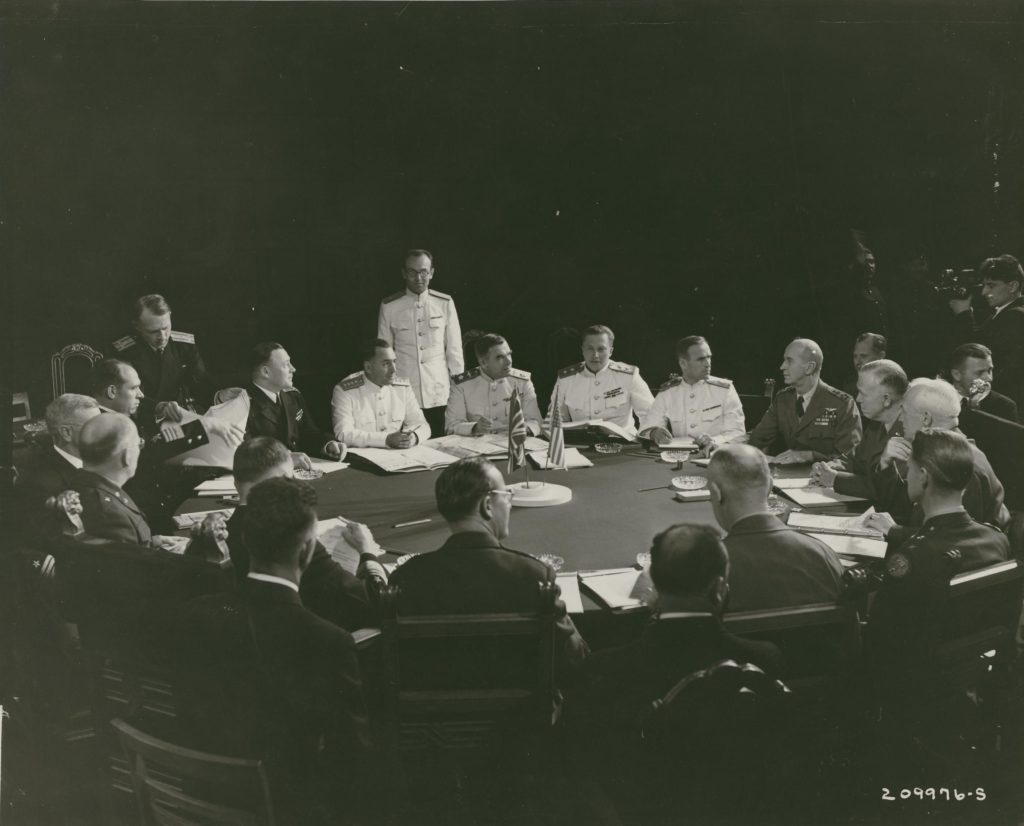
Combined chiefs, with additional representatives from France and the Soviet Union, meeting in Potsdam.
British Field Marshal Alan Brooke wrote about this decision, “There I foresee more trouble ahead. We want a greater share in the control of the strategy in the Pacific and they are apparently reluctant to provide this share.”
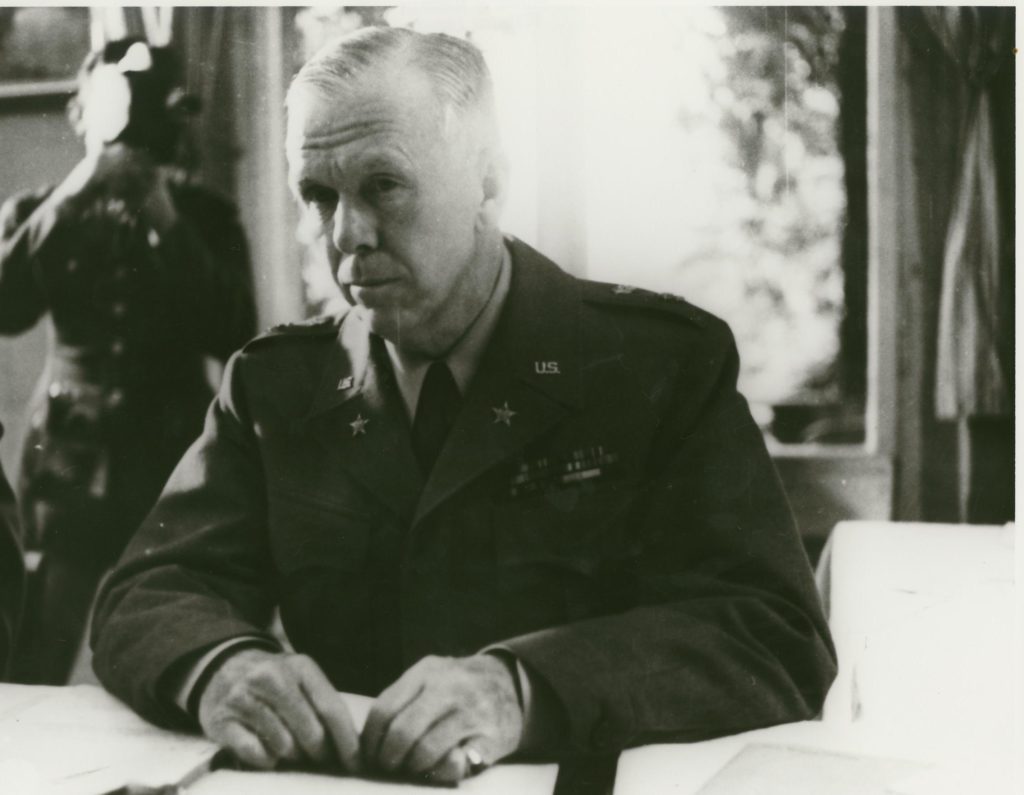
Gen. George Marshall at a Combined Chiefs meeting
At the Combined Chiefs meeting the next day, Marshall spoke about the difficulty of control in the vast Pacific, and the best course of action would be to simplify control and avoid unnecessary delays. The Joint Chiefs would discuss plans with their British counterparts, but would make the final decisions. If the plans for the invasion of Japan didn’t sit well with the British, the U.S. military would still move forward.
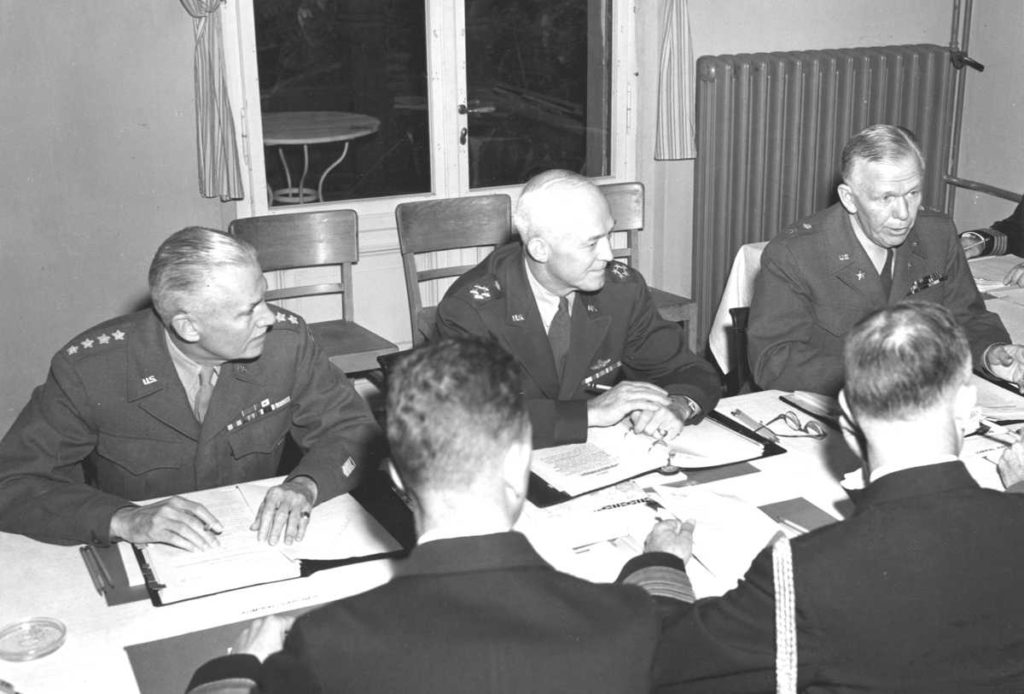
Gen. Brehon Sommervell, Gen. “Hap” Arnold, and Marshall at a Joint Chiefs meeting in Potsdam.
The most public document to come from the Potsdam Conference was the Potsdam Declaration, calling for the unconditional surrender and complete disarmament of Japan. It was agreed to by all allies but the Soviet Union who had not yet declared war on Japan. Japanese Prime Minister replied, “No comment.”
Postdam, codenamed “Terminal,” was the last of the allied wartime conferences. In 3 ½ years , major allied conferences had been held in the United States, Canada, Morocco, Egypt, Iran (then called Persia), the Soviet Union, and Germany.
Before becoming director of library and archives at the George C. Marshall Foundation, Melissa was an academic librarian specializing in history. She and her husband, John, have three grown children, and live in Rockbridge County with three large rescue dogs. Melissa is known as the happiest librarian in the world! Keep up with her @MelissasLibrary.
